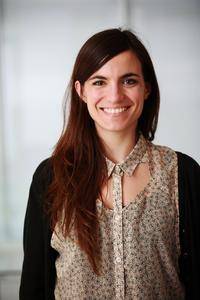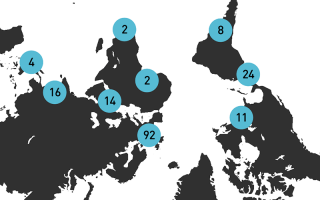Lara Martin (2010-2011): Social Development Consultant at URS

Q: What initially sparked your interest in the DAP programme?
A: I really liked the sound of the programme and the possibility to incorporate modules from different courses in the DPU. I did DAP and combined it with an SDP module which was the perfect combination for me.
The second big factor was the fieldwork opportunity that the MSc offers. It was a great experience and a determining factor to get my current job. Many examples that I used to reply to job interview questions came directly from that experience in Ethiopia, my relationship with my working team and the challenges we experienced in the field.
Q: What was your prior experience with development, if any, and what did you hope to achieve by participating in the course?
A: I had no prior experience in development at a professional level per se, but I did have personal international experience relating to travel in developing countries and NGO volunteering. I came to the course with a strong interest in international development and sustainability, my academic background (in Business Administration and Human Resources Management) and limited professional experience, composed of a number of internships (mostly unpaid) in various sectors.
Most recently, I had been working in the banking sector, but found that it was not allowing me to drive my career in the direction I wanted. I can confidently say that this Masters allowed me to make the career shift I was after.
Q: What was your favourite aspect or feature of the DAP course? What was your favourite module or subject?
A: I appreciate that I was afforded the possibility of focusing my essays and coursework on the topics that interested me the most (e.g. the private sector and sustainable development). I also greatly enjoyed the fieldtrip and the opportunity to take an optional module in a different area.
It would be very difficult for me to pick a favourite module, but I can more easily think of the brilliant and inspiring people who were talking me through them. I honestly could not pick just one favourite, but the course’s practice module, which includes a workshop in Windsor Great Park, has proven very useful to my career thus far.
Q: How has your career developed since completing the course? Where have you been working since graduation, and how did you get into that role? How has the course prepared you for your current career?
A: I did an internship in Corporate Social Responsibility during the MSc and followed by a 3-month role in an environmental consultancy. After these two experiences I was selected to join URS as a Social Development Assistant on a 6-month contract. I was then made a permanent member of staff and was promoted one year after joining URS.
So far I have gained experience in various international development projects, specifically working in Social Development areas including Social Impact Assessment, Stakeholder Engagement, and Resettlement Planning. Through these projects I had the opportunity to visit several different countries in the developing world and work in different sectors.
Q: Do you have any words of advice for current or prospective students?
A: Design the programme to fit your needs by carefully choosing your elective modules, the topics of the seminars you present and the essays you write, and most importantly the topic of your dissertation. This will become part of your ‘knowledge capital’ later on, and a good way to demonstrate your area(s) of interest. Secondly, be patient with your job search when you finish, stay positive and confident by focusing your positive energy on the applications and roles that you really want (i.e. avoid sending CVs as if you are handing out leaflets to people in the street). Make good use of social media and the personal connections you make while on the course.
 Close
Close


